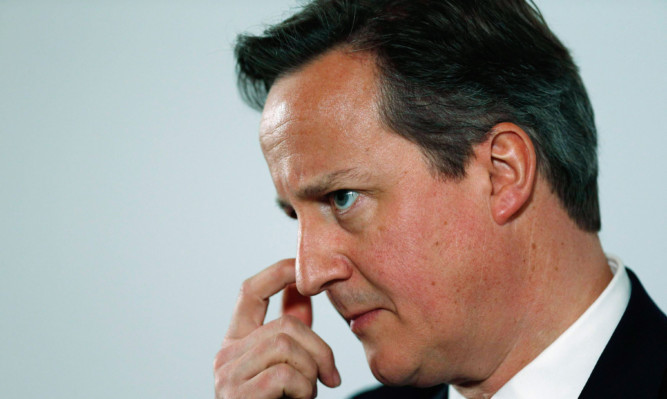
Conventional wisdom has it that this year’s General Election is set to be one of the tightest in history.
So it was a surprise to hear a leading Labour strategist tell me that he’s anticipating one of the most boring campaigns of all time. His reasoning is that there’s a lack of landmark policies or sharply contrasting messages to enthuse or repel voters.
Early evidence for the theory that it will be a dull debate in the run-up to the vote arrived at Prime Minister’s Questions last week when Tory Robert Jenrick threw in a reference to pop star James Blunt during his contribution.
Jenrick is so bland he’s nicknamed Robert Generic.
James Blunt can’t even scale that height of interest his nickname is apparently Blunty. Jenrick was no doubt very proud of his clever use of the word “blunt” into his question to the Prime Minister.
Unfortunately, it was met by shouts of “James Blunt” from his fellow backbenchers in the style of elderly relatives finally getting the punchline to a Christmas cracker joke hours after the turkey’s been cleared away.
The singer got a mention because earlier in the week he’d dubbed shadow culture minister Chris Bryant a “classist gimp” his parents didn’t spend thousands of pounds to send him to a hoity-toity Harrow school to hear him use language like that in response to the Labour man’s claim there are too many posh people in the arts.
Blunt may just be jealous that Bryant does have an interesting fact attached to him. Unfortunately, that fact is that he’s still most famous for posting a picture of himself in his pants on a dating website.
David Cameron did try to keep the pop references running by describing something as “hunky dory” later in the session. However, most MPs are too uncool to get the reference to an album by the boggle eyed rock legend and noted Unionist David Bowie.
In the absence of interesting policies or party positions, polls will fill the void during the election campaign. That’s a criticism of much political journalism as well as politics itself.
Just as coverage of last year’s independence referendum increasingly narrowed to waiting for the next opinion poll as polling day neared, so it will be in May when the fluctuations in fortunes reflected in the pollsters’ percentages will be the story.
Unless one man has his way.
Lord Foulkes quietly introduced a Bill last week that would clamp down on the number of opinion polls. He claims that increasingly the snapshots of public opinion are driving the political narrative. The Labour peer claims polling used to be a noble science but it’s been downgraded by more companies entering the field and using cheaper and less accurate ways of garnering opinion, mainly via the internet.
He’s got a point.
Polls remain inaccurate most had the independence referendum too close to call when, in the event, the Yes campaign was comprehensively beaten. Political parties and sensible commentators repeat that it’s trends rather than single polls that are to be taken seriously. Yet it was in response to just one poll putting Yes ahead that the Westminster party leaders signed the Vow.
Foulkes isn’t going as far as calling for a single national polling company, but given there’s a national news organisation the BBC, which is trusted more than any other outlet and every politician and a national statistics body, it wouldn’t be unreasonable to do so.
He reckons in the coming months that the polls could sway folks decision as to whether it’s worth voting and for whom in their own constituency. In a tight election that could make a big difference.
As a backbench Bill in the fag end of the parliament, Foulkes’ proposal won’t make it into law. At best, his “it was better in the good old days” message might attract a few Ukip voters to the Labour fold.
But he’s putting the polls in the spotlight and, with likes of Foulkes around making such mischief, maybe the next few months won’t be as dull as some think.

Enjoy the convenience of having The Sunday Post delivered as a digital ePaper straight to your smartphone, tablet or computer.
Subscribe for only £5.49 a month and enjoy all the benefits of the printed paper as a digital replica.
Subscribe